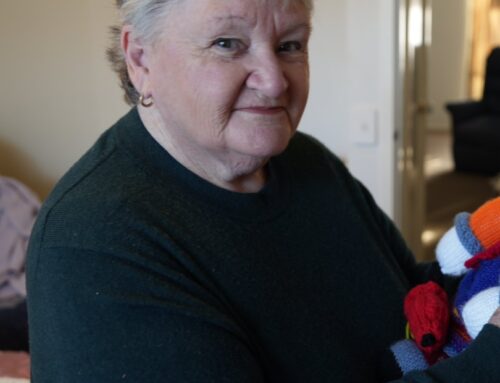When Dion Sternberg and his wife decided to buy their first home in Adelaide last year, power prices were, oddly enough, one of their bigger concerns.
They’d recently moved from Queensland back to their home state of South Australia, and they were worried that relatively higher energy costs would take a toll.
“We knew one of the things that we were going to need to do is try and reduce our electricity bill and our gas bill as much as we could,” Mr Sternberg said.
“And that’s when I started doing a bit of researching.”
That research led the 34-year-old towards solar power – specifically, upgrading the existing 1.5kW installation to a bigger system in a bid to keep a lid on costs.
But instead of the flat rate for electricity he was expecting to be charged — and on which he had made all of his assumptions — Mr Sternberg got a nasty surprise.
He was switched to a time-of-use tariff that was much higher during the evening and morning peaks.
Worse, Mr Sternberg said he knew nothing about it until his next bill arrived.
“There was no ‘would you like to change’,” he said.
“I did all my research on single rate tariffs and so with the time-of-use tariff, it now meant that a lot of the savings that we were expecting were not going to be as high as we initially thought.
“It was pretty frustrating.
“As you can imagine, this was two months into buying our first house and the power calculations of the costs that we’d made had all changed.
“We were trying to counteract the electricity bill and now it’s a lot higher, we’ve obviously had to make some changes around our budgeting.”
That the father of three young children was put onto a time-of-use tariff was, from his point of view, bad enough.
Exploiting the fine print
But he said the fact it happened without his consent or his prior knowledge made it so much more difficult to swallow.
The stealthy change was made courtesy of a loophole that consumer advocates say allows electricity retailers to skirt their obligations to warn consumers ahead of time about changes to the way they are charged for power.
Across the country, big numbers of customers are being shifted onto power prices that can vary according to the time of day but many have reported being unaware of the changes until well after they have occurred.
Consumer groups and charities say the failure to give advanced warning to householders stems from a little-known technicality in the national energy retail rules.
Under the rules, retailers do not have to provide advanced notification to consumers about changes to their tariffs if the underlying rates charged by the network poles-and-wires company to the retailer are altered first.
In such circumstances, retailers only have to tell consumers “as soon as practicable, and in any event no later than the customer’s next bill” – a process which can take three months or even more.
Critics describe the provision as a loophole and say it allows power firms to dodge any requirement to get prior informed consent from households about fundamental changes to the way they pay for electricity.
It comes amid growing complaints about retailer behaviour which have been covered by the ABC and recently prompted the Australian Energy Regulator to “remind them of their obligations”.
No warning, no support
Gavin Dufty, the manager of policy and research at St Vincent de Paul, a charity, accused retailers of being lazy and failing consumers in their use of the loophole.
Mr Dufty that while it might be legal, it was unethical.
“The rules say, you’ve got three months,” Mr Dufty said.
“It doesn’t mean they can’t do it three months earlier, or for that matter, three months before the change happens.
“I think blaming the rules… it provides an insight into retailers who are caught up and bound by the rules.
“There’s nothing in the rules that says they can’t do the right thing by consumers. So it’s a little bit of a furphy.
“Again, retailers need to think of the consumer, the customer, and the community and start to think ‘well, what do they want?’. And they don’t want it three months later. That’s just poor.
“Blaming the regulatory framework for poor retailer outcomes is a bit disingenuous.”
Mr Sternberg said neither his retailer at the time – AGL – nor the poles-and-wires company that services his home – SA Power Networks – were willing or able to give him a clear answer about his circumstances or his rights.
He said the lack of notice about such a fundamental change to the way he is charged for electricity, coupled with the lack of support to help him deal with it, seemed unfair and wrong.
“It seems a bit ridiculous, really,” he said.
“I don’t think you’d really find that in any other industries where they can just force you onto something without at least notifying you (beforehand).
“It’s a pretty frustrating thing on a consumer end, thinking we’re committing to something and have plans… and they just use a loophole to get out of it without having to let us know anything until we contact them.
“It doesn’t seem like the right way to go about it.”
Reform has been ‘challenging’
Underlying the shift towards time-of-use and other such “cost-reflective” tariffs are smart meters that enable much more sophisticated – and complicated – pricing schemes.
While about 40 per cent of Australian homes currently have a smart meter, regulators including the Australian Energy Market Commission want one installed at every property by the end of the decade.
In response to concerns about the notification loophole in the national rules, the AEMC has proposed changes that would require a retailer to “issue a notice at least 30 business days before applying any tariff variation”.
It also wants retailers to give customers an estimate of their bill under a new tariff compared with an existing rate based on historical account information, along with more customer support.
The Australian Energy Council, which represents electricity retailers, acknowledged the roll-out of smart meters, and the tariff reforms they enabled, had not been handled especially well.
“I would say that these are challenging reforms to implement,” acting chief Ben Barnes said.
“Retailers have had to undertake a shift in how they interact with network tariffs.
“And I would agree that in making some of those changes between working out what sort of a tariff they would charge a customer… haven’t gone as well as they could have.
Power bill literacy a concern
Mr Barnes said the lobby group supported cost-reflective tariffs and the smart meters that sat behind them, but he also had some worries.
Chief among them was the complexity of many cost-reflective tariffs.
But he also said the forced switching – or “mandatory assignment” – of customers to time-of-use tariffs was a concern.
“I think the optimal outcome is that consumers are able to choose to enter into tariffs,” he said.
“In circumstances where there has been mandatory reassignment, I think it’s really important that the industry and governments and other participants in this space, give customers enough information that they are able to act and understand what the new tariffs will mean for them.
“I think customer capability is really important in this space. We have a real concern with tariffs that are too complex for anybody to understand without significant energy literacy advice.
“We really need to make sure that the tariffs themselves, particularly those where customers are mandatorily put on these tariffs, are simple enough that they are able to make easy, actionable choices within their house and business to reduce their cost.”
To that end, Mr Dufty from St Vincent de Paul took a dim view of retailers’ actions to date.
Mr Dufty, who has been a leading advocate for tariff reform to ensure electricity is charged on a more equitable basis, said the “poor” handling of changes so far risked undermining the whole effort.
He said it was imperative that consumers be charged a fair price for their use of – and the pressure they put on – the grid.
It was an increasingly pressing need, he said, given the rise of technologies such as electric cars that could add enormous pressure to the system, increasing costs for everyone, if not integrated properly.
And, at the heart of it all, he said the broader energy industry and government needed to make sure consumers were aware of the changes that were being made and given the support that would help them deal with it.
“Shifting somebody from a flat tariff to a time-variant tariff, and then telling them about it, you know, three months later on, it is not customer focused,” Mr Dufty said.
“It is a retailer that is thinking about how to extract the most value out of its wholesale portfolio and shifting the risk to consumers.
“That’s not what retailing is about.
“Retailers need to pull their head in, basically.
“They need to start to think about the consumer and start to use the smarts that these smart meters give us to actually work with people about how to shift consumption… where they can and we’ll all be better off.”





